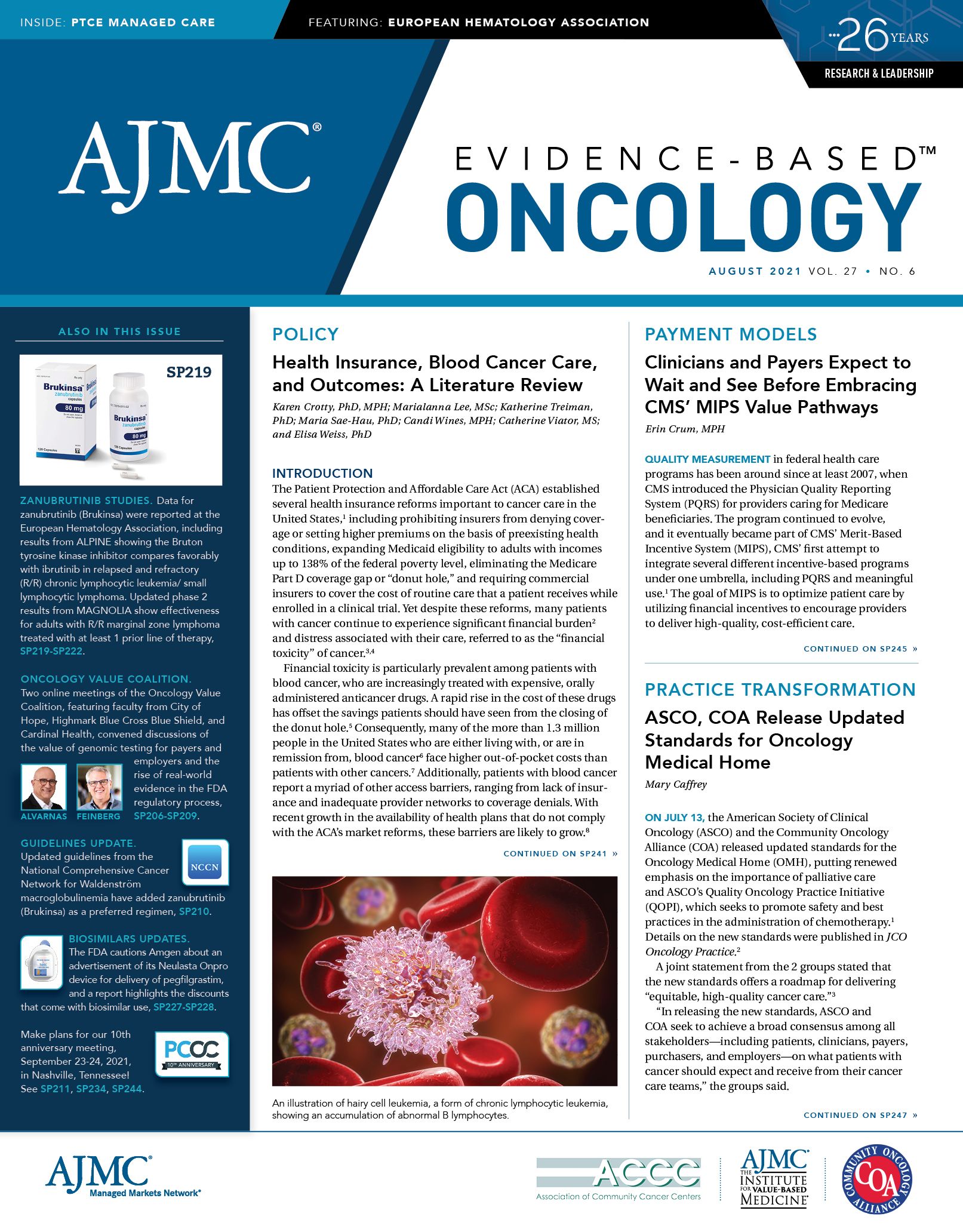- Center on Health Equity & Access
- Clinical
- Health Care Cost
- Health Care Delivery
- Insurance
- Policy
- Technology
- Value-Based Care
From the Editor-in-Chief: Shiny New Objects Within a Struggling System
"No matter where you go, there you are." Buckaroo Banzai
WE LIVE IN AN AGE OF MIRACLES. Yet, at times like these, the moment seems less than miraculous. As the scientific underpinnings of oncology advance well past the frontiers of
what I might have imagined possible when I graduated from medical school 32 years ago, the ability to ensure that all patients and families benefit consistently and equitably remains as distant as it has any time in the past. No matter how far knowledge and innovation can take us, we remain beholden to systems that lack the plasticity to grapple with this time of immense change. So, as we revel in the potential of all the ways in which we have advanced well past the limitations of prior decades, we remain beholden to seemingly intransigent barriers based on ossified systems of care.
Following its passage in March 2010, the Affordable Care Act promised to change so much,
but expanded coverage has yet to translate fully into equitable access to the kinds of care that represent the hallmarks of the precision medicine revolution. As we embrace a transformational pipeline of innovative, life-altering therapeutics, we continue to struggle to create a sustainable model of how best to pay for these therapeutics. Inasmuch as advanced technology, such as chimeric antigen receptor T-cells, portend the ability to effectively treat patients with relapsed and refractory cancers, we struggle to create the requisite care networks and payment models to ensure that patients who need these treatments actually receive them.
It is easy to become deluded that there are simple fixes or magical remedies for the challenges that we face in making the full breadth of cancer innovation available to the patients and families that need them most. There is no single program, piece of legislation, CMS demonstration project, or “shiny new object” that will cure the ills of our system. I have heard the word “value” bandied about in careless ways that distracts from the hard work and intradisciplinary collaboration that will be essential to fully define and subsequently realize a value-centered system of cancer care.
In this issue of Evidence-Based Oncology™, we see both the future of what can be, and the prosaic
bumps in the road that will make a full realization of that future difficult. Mary Caffrey provides a
summary of a recent webinar, “Genomic Testing Creates Opportunities for Collaboration Between
Academic Centers, Private Sector.” This conversation covered potential steps in fostering and advancing more effective cancer care that is built upon the foundations of genomic testing and precision medicine delivery. We also examine what a more effective ecosystem for delivering care to cancer patients might look like in our review of the updated standards for an Oncology Medical Home between the Community Oncology Alliance and the American Society of Clinical Oncology. At the same time, the limits of our current system, including limitations in coverage for the care of patients with blood cancers and our continued struggle with the creation of meaningful, actionable metrics for assessing oncology physician performance remind us of the ways in which our system struggles to adapt to this period of hyperdynamic change.
I remain an optimist that the lives of cancer patients and their families will continue to evolve in ways that will bring better outcomes, better patient experience, and more sustainable care costs. I do not, however, underestimate the extraordinary amount of work, collaboration, blood, toil, tears and sweat that it will take to get us there. Wherever we are, we will be there as a community of the community, trying to find the best path forward, a struggle in which we will strive, “to seek, to find, and not to yield.”

Exploring Medicare Advantage Prior Authorization Variations
March 26th 2024On this episode of Managed Care Cast, we're talking with the authors of a study published in the March 2024 issue of The American Journal of Managed Care® about their findings on variations in prior authorization use across Medicare Advantage plans.
Listen
